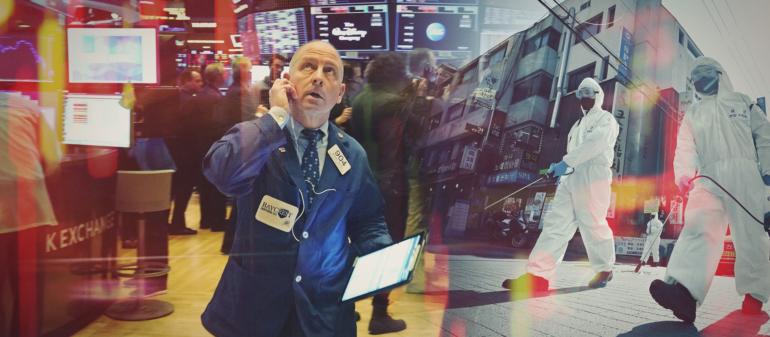Coronavirus continues to spread around the world.
According to the World Health Organization over 110,000 infections have been recorded and over 3,800 people have died. Italy has now extended its quarantine measures that include a ban on public gatherings for the entire country.
Meanwhile, fears about the virus are having a big impact on financial markets from Asia to the United States. And, on Monday, Wall Street saw its biggest one-day loss since the financial crisis back in 2008.
To discuss:
- Einar Tangen is a political and economic affairs commentator.
- Hafed Al Ghwell, senior fellow, Foreign Policy Institute at John Hopkins University
- Remi Piet, research associate on political economy and foreign policy at the Florida International University
- Anthony Chan, former chief economist at JPMorgan Chase & Co
For More:
It's a historic day on Wall Street. The Dow is within 1% of bear market territory, oil is having its worst day in nearly 30 years, and Treasury yields hit record lows. Here's what's going on in the markets. https://t.co/JMSPanc2mg pic.twitter.com/xvLzRW9Wj1
— CNBC (@CNBC) March 9, 2020
Asian stock markets tumble after oil prices crash https://t.co/0KNZlZ83tg
— BBC News (UK) (@BBCNews) March 9, 2020
The FTSE 100 today suffered its sharpest one-day fall since the height of the financial crisis in October 2008 as a collapse in oil prices shattered global stock markets already shaken by the coronavirus epidemic https://t.co/rZkMedLVL5
— The Times and The Sunday Times (@thetimes) March 9, 2020
 CGTN America
CGTN America

